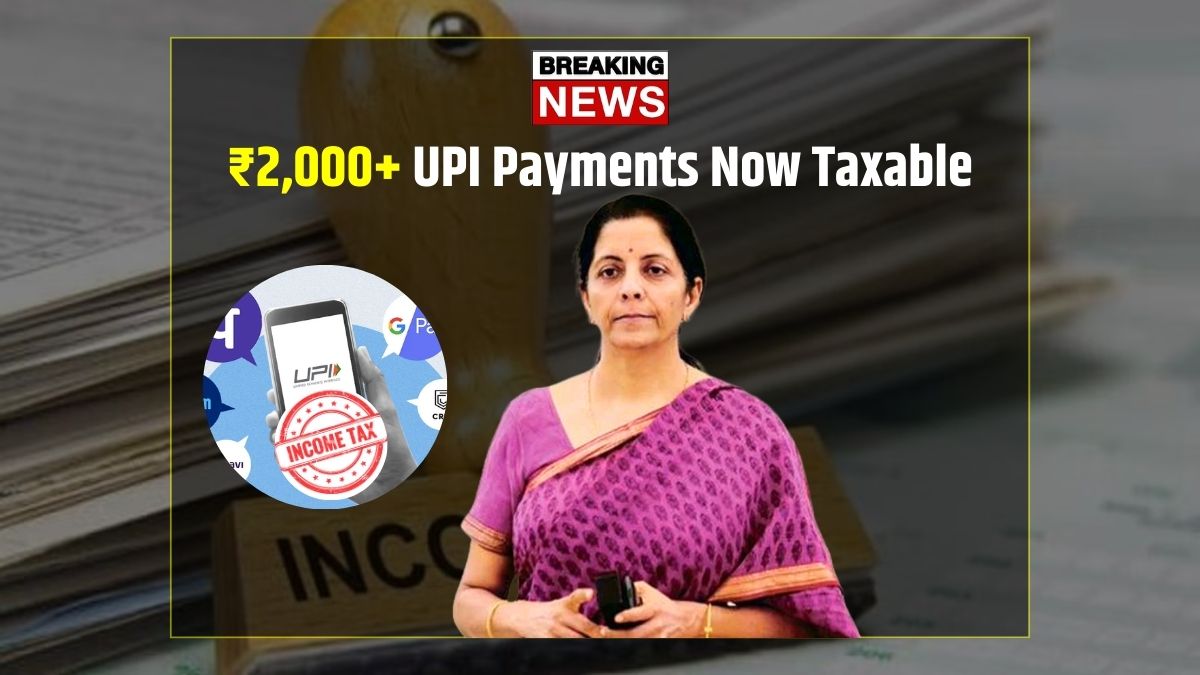GST on UPI – If you’ve ever paid for groceries, ordered something online, or transferred money to a friend using apps like PhonePe or Google Pay, then you’re already familiar with UPI. It’s quick, simple, and a part of everyday life for millions of people across India. But recently, there’s been buzz around a new GST rule related to UPI payments over 2000 rupees, especially when those payments are tied to business transactions.
So, does this mean you’ll have to start paying GST just for using UPI? Not exactly. Let’s break it down and understand what’s really going on.
First, What Is UPI and Why Do People Use It So Much?
UPI, or Unified Payments Interface, is a payment system developed by the National Payments Corporation of India (NPCI). It allows instant money transfers between bank accounts without needing to enter complicated details. You just need a mobile number, bank name, or a QR code to get started. It works 24/7 and is supported by almost every major bank and digital wallet.
Thanks to UPI, you can split a restaurant bill, pay for a cab, shop online, or even run a small business—all without needing cash. And that’s what makes it so popular across India.
Now, What’s This New GST Rule All About?
There’s a new guideline being discussed that may bring GST into the picture for certain UPI transactions. But before you worry, here’s the key point—this only applies to business-related UPI payments above 2000 rupees. If you’re using UPI for personal transfers like sending money to a friend or paying your rent, you don’t need to worry about any extra tax.
Main Takeaways From the Rule
- Personal transactions made through UPI remain completely tax-free.
- Business-related payments that go beyond the 2000-rupee mark might be subject to GST.
- Sellers and service providers who receive these payments may need to show GST in their bills and register for GST if they haven’t already.
A Simple Example
Let’s say you buy clothes worth 2500 rupees from an online seller and pay via UPI. If that seller is operating as a business, GST will be added to your bill, just like in any other regular invoice. But if you send 3000 rupees to your cousin for a gift, that’s a personal transfer—and no GST will apply.
Who Really Needs to Pay Attention?
For Regular Users:
If you’re using UPI casually to pay for your personal needs—like ordering food, paying a local vendor, or transferring money to a friend—this rule doesn’t change anything for you. No extra charges, no GST.
For Freelancers, Entrepreneurs, and Small Business Owners:
If you regularly receive payments through UPI for your products or services, and those payments exceed 2000 rupees, this rule might apply to you. You may be expected to register under GST and provide proper tax invoices for the transactions.
What’s the Difference Between Personal and Business UPI Transactions?
It all comes down to intent and volume. Sending money to a friend is personal. Getting paid for a freelance project is business. If you receive money often for your work, your UPI transactions could be viewed as commercial in nature, and that’s when GST rules kick in.
How Could This Affect Small Businesses and Freelancers?
Many small sellers, local shopkeepers, and gig workers depend on UPI for their daily income. This rule could create some confusion for those who aren’t yet registered under GST. They might have to adjust prices to cover the tax or start keeping proper records of all their UPI payments.
Some possible outcomes include:
- Business owners might increase their prices to absorb GST costs.
- More businesses may need to get GST registration to stay on the right side of the law.
- Keeping records of each UPI transaction will become more important.
- Some small vendors might prefer switching to cash or other platforms to avoid compliance hassle.
How Can Business Owners Stay Compliant?
If you fall into the business category, here’s what you can do:
- Track your earnings – Know if your income crosses the GST threshold.
- Register for GST – Don’t wait until you’re penalized.
- Issue invoices properly – Mention GST clearly in all customer bills.
- Maintain clear records – Keep logs of all UPI payments received for work.
- Talk to a tax expert – Every business is different, so get advice tailored to your situation.
Should You Be Concerned?
Honestly, if you’re just using UPI for your daily needs, you don’t need to worry at all. Nothing changes for you. But if you’re running a business, especially online or as a freelancer, it’s a good time to review how you receive payments and whether you’re GST compliant.
India’s UPI system continues to grow, and these new tax rules are meant to improve transparency and bring more businesses into the formal economy. It’s not about taxing every UPI user—it’s about applying tax where business is being done.





